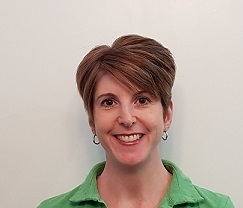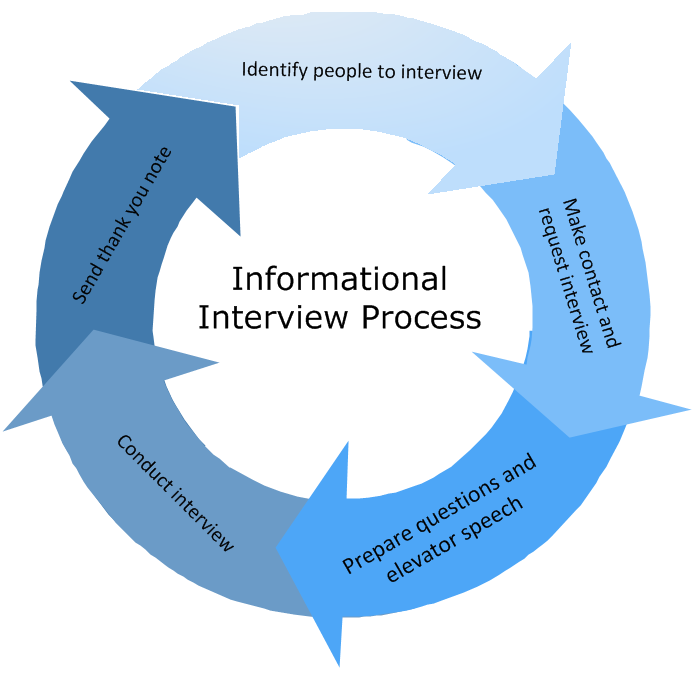Statistics show that only 20% of all jobs are advertised. Therefore, 80% are filled through referrals, networking and word of mouth. Conducting informational interviews can help you uncover unadvertised positions and build your network.
What is an informational interview?
It’s an informal meeting where your only objective is to gain information about an industry, company, specific job or someone’s career path. The meeting can be conducted over the phone or in person and should be less than 30 minutes. Remember, it’s not about asking for a job, it’s about information.
Why do people do them?
- Seek advice on how your skills and experience fit the industry or company
- Get information about a company, its products / services and its culture
- Ask the interviewee about their career path and obtain career advice
- Gain insight into what the day to day work is like from someone who is currently is a role you want
How to find people to interview
I personally like using LinkedIn. People are there to network, making it less intimidating to contact them. You can search for people who are in the same groups as you and you can send them a free message. You can also use the introduction feature to ask someone in your network to introduce you to someone in their network. You can also find people in the Business in Vancouver (BIV) magazine or by attending local events. You can find local events at:
Request a meeting
After determining what you want to learn and who you want to meet, contact the interviewee to request a meeting. Don’t be intimidated; people like opportunities to talk about themselves or their company. Contact them by email or phone. If you have been referred by a friend, let them know who it was. Concisely state that you are looking for information, specify what you would like to discuss and state the timeframe (less than 30 minutes). Frame it so they can say no without awkwardness.
Prepare, prepare, prepare
Before the meeting, conduct your research and prepare enough questions for the allotted time. Focus the questions on your stated purpose. Be prepared to give your 30-second elevator speech because they will eventually ask about you and your experience.
If you’re looking for some inspiration on what questions to ask, check out this list of 200 sample questions.
Conduct the interview
Treat this meeting like you would a job interview. Arrive early (if meeting in person), dress appropriately for the industry and show interest. You can bring a resume with you, but only provide it if they ask or if you asked for input on it.
If you feel comfortable, ask them for names of other people that you can contact and interview. This is a great way to continue building your network.
Capture and record information gained during the interview. Always keep a log of all the contacts you make and topics discussed.
Send thank you notes
Write a thank you email or better yet, send a handwritten thank you note within two days of the interview. If there were any follow-up items, be sure to complete them as promised. If appropriate, keep in touch with the person to let them know how things are progressing as a result of your meeting.

Wendy Hollingshead is a technical writer with a passion for simple and effective training and reference material. She is a freelance contractor specializing in software documentation and instructional design.


Good info that’s worth repeating. Whether interviewees find people to interview through STC Canada West Coast, LinkedIn or other networks, the process is the same. Thank you, Wendy, for gladly sharing these steps.